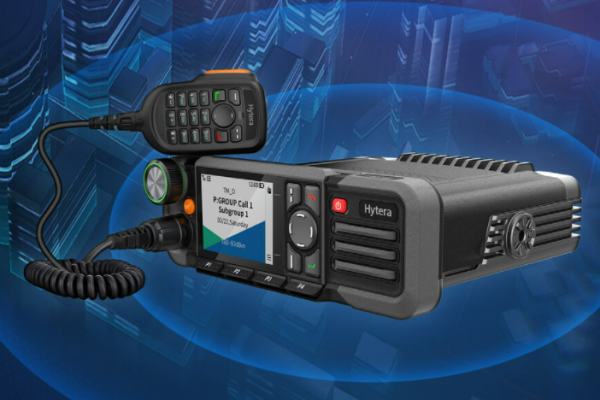Getting paper contracts signed by hand is not only time-consuming but expensive, too. And then there are the issues of losing, misplacing, or resending them.
This process can be replaced with automated systems that allow digital signatures to be securely incorporated into the contract workflow and other business processes. This is thanks to various safety measures and security features built into e-signature platforms.
Table of Contents
Compliance
In addition to being a secure, legally binding signature, digital documents also provide an audit trail. This makes it easy to trace back an agreement or contract if there is an issue. This is a valuable tool for businesses to maintain compliance with regulations in the case of a breach.
Companies can drive automation and streamline workflows by integrating electronic signature functionality into their existing systems (content management, contract management, CRM, HR, AP software, e-commerce platform, etc.). This saves time and money for everyone involved.
Historically, companies would need to print and physically send documents for signatures before they could be legally recognized. This process was often lengthy and expensive, especially for those working internationally. With the help of technology, apps introduced how to add an electronic signature to PDF documents. By implementing e-signatures, companies can avoid this costly and inefficient process and improve the productivity of their teams. With e-signatures, all parties can sign on the dotted line simultaneously and in real-time. This allows sales representatives to close deals and meet their sales targets more efficiently and quickly. Additionally, e-signature services enable users to confirm their identity through various authentication methods, including biometrics like finger and face scans and AI verification technologies like machine learning algorithms.
Security
Compared to handwritten signatures, digital signatures offer enhanced security and verifiability. They are used by companies to expedite business processes while also ensuring compliance with legal and industry-specific standards.
E-signatures use encryption algorithms to create a digital representation of the signature, which can be verified to ensure the signer’s identity. They are also useful for high-security documents, including sensitive information and intellectual property agreements. Additionally, they can be used to comply with specific standards and regulations such as those outlined in the European Union’s eIDAS regulation and the UETA and ESIGN Acts in the United States.
Other features of e-signatures include multi-factor authentication, secure storage and transmission protocols, and detailed audit trails that provide transparency and accountability for each transaction. This makes meeting state, federal, and industry-specific information security and privacy compliance standards easier. In addition, e-signatures are environmentally friendly, eliminating the need for paper usage and saving on printing and scanning costs.
Convenience
Unlike traditional documents, electronic signatures feature encryption technology that prevents tampering and forgery. They also offer audit trails, making tracking and verifying the document’s authenticity easy. This helps companies meet compliance standards and regulatory requirements like eIDAS in the EU or ESIGN in the United States.
In addition, signatures are mobile-first, allowing people to sign on the go from any device. This convenience will enable companies to expedite contract workflows and collaborate across departments more efficiently. It also reduces paperwork and eliminates the need for old-fashioned physical document exchanges, saving money and resources. Additionally, electronic signatures can be combined with an organization’s existing systems, such as a content management system (CMS), CRM, HR, AP software, or e-commerce platform. This allows businesses to streamline their processes without having to rip and replace their existing software, driving adoption and further cost savings. Lastly, digital signatures provide an environmentally friendly alternative to paper and ink for signing documents and contracts. This reduces waste and makes a positive impact on the planet.
Flexibility
Unlike physical signatures, which must be handwritten, scanned, and sent for processing, an electronic signature can be completed remotely. This can save money on printing and shipping costs and reduce the paper used in your business.
Moreover, many e-signature systems allow multiple signers to access and sign documents simultaneously. This eliminates bottlenecks and enables a faster document processing time. This makes a huge difference in customer satisfaction and loyalty.
Additionally, a robust e-signature platform will store the original signed document and all revisions in case they need to be accessed again. This will ensure your documents and signatures remain tamper-proof and legally valid, even in a security breach.
Time-Saving
As a result of using an electronic signature solution, several time-consuming steps can be eliminated. For example, a business can eliminate the need to print documents for review and signature. This can save valuable printing and ink costs. In addition, scanning and overnight delivery costs can be reduced.
A company’s legal department can also save time when collecting signatures on contracts, leases, and non-disclosure agreements. This frees up the team to focus on other legal tasks, helping them be more productive and reducing the work that needs to be done manually.
Another area where time is saved with e-signatures is when collecting signatures from remote clients or customers. This removes the need for the person to send a document by email or fax to obtain the signature. Instead, they can use a mobile device to access the document and sign instantly, making the process faster. This helps increase overall turnaround times and improves sales performance. This also increases client satisfaction and retention. For further peace of mind, e-signature solutions have robust audit trails that clearly show who signed the document, when, and from where, which is helpful in compliance and audits.





